Best Lemon Essential Oil Brands for a Refreshing and Uplifting Aroma
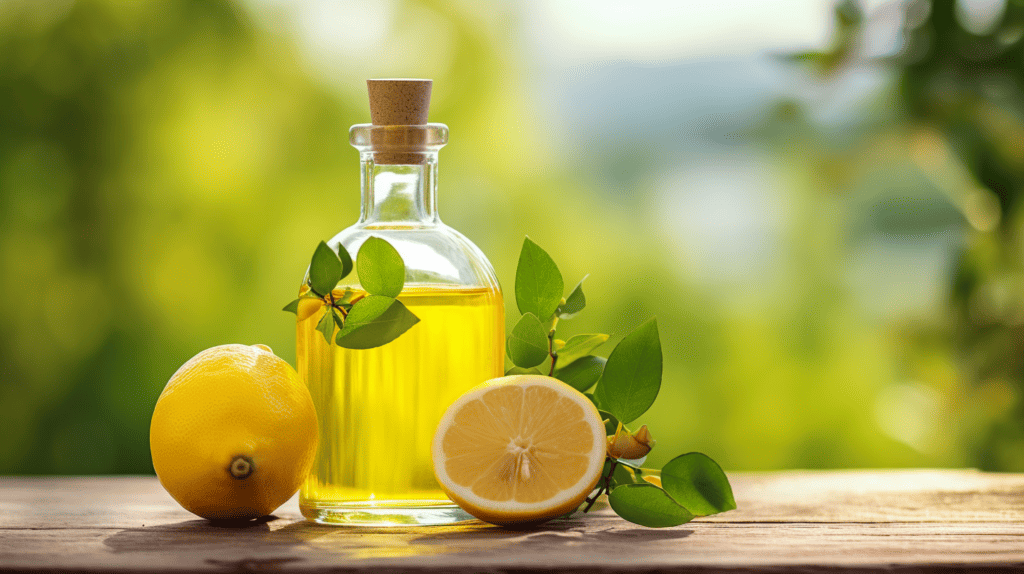
If you’re looking for the best lemon essential oil brands, you’ve come to the right place. Lemon essential oil is a popular choice for aromatherapy, skincare, and DIY home products.
It has a fresh, citrusy scent that can uplift your mood and promote relaxation. In this article, we’ll explore the top lemon essential oil brands that offer high-quality, pure, and therapeutic-grade oils.
Understanding essential oils is crucial when it comes to choosing the right brand. Essential oils are highly concentrated plant extracts that contain the natural aroma and healing properties of the plant.
Lemon essential oil is extracted from the rind of the lemon fruit and is known for its antibacterial, antiviral, and anti-inflammatory properties. It can be used to boost your immune system, improve digestion, and promote healthy skin. However, not all essential oils are created equal.
The quality and purity of the oil can vary depending on the brand, extraction method, and sourcing. That’s why it’s important to choose a reputable brand that prioritizes quality and sustainability.
Key Takeaways
- Lemon essential oil is a popular choice for aromatherapy, skincare, and DIY home products.
- Choosing a high-quality, pure, and therapeutic-grade oil is crucial for reaping the benefits of lemon essential oil.
- The top lemon essential oil brands prioritize quality, purity, and sustainability.
Understanding Essential Oils
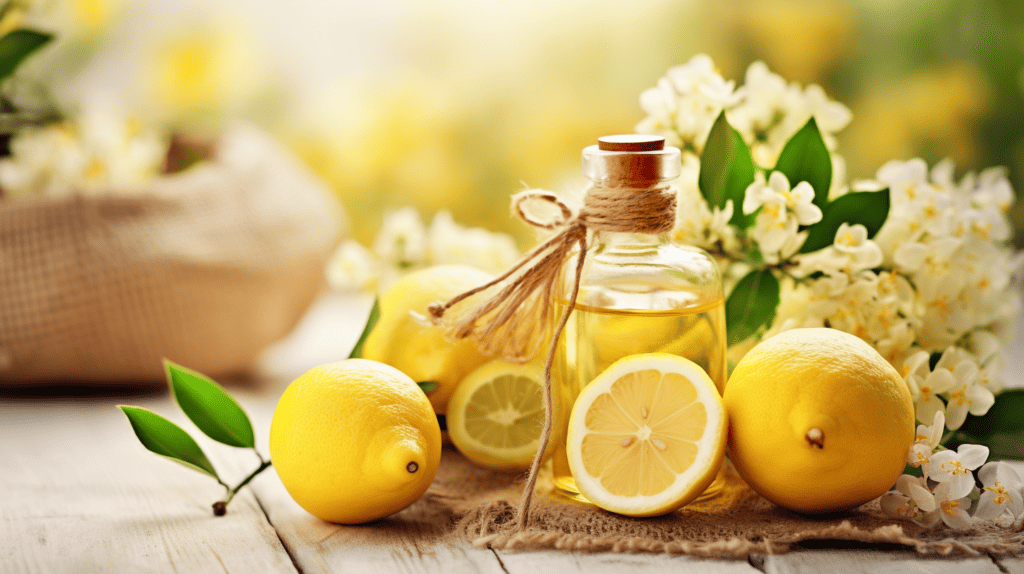
If you’re new to the world of essential oils, it can be overwhelming to know where to start. Essential oils are highly concentrated plant extracts that are used for a variety of purposes, from aromatherapy to skincare. They are often used in art and as a way to enhance the mind and body.
Essential oils are made by distilling plant material, such as flowers, leaves, and roots. The resulting liquid contains the natural fragrance and properties of the plant, which can be used for different purposes.
It’s important to note that essential oils are highly concentrated, so they should always be diluted before use.
There are many different types of essential oils, each with their own unique properties and benefits. Some of the most popular essential oils include lavender, peppermint, and lemon. When choosing an essential oil, it’s important to consider its intended use and any potential side effects.
While essential oils have been used for centuries, there is still ongoing research into their effectiveness and safety. Some studies have shown that certain essential oils may have health benefits, while others have found little evidence to support their use.
In summary, essential oils are a natural and versatile way to enhance your wellbeing. Whether you’re looking to improve your mood, soothe sore muscles, or simply enjoy a relaxing scent, there is an essential oil that is perfect for you.
However, it’s important to use them safely and responsibly, and to always consult with a healthcare professional before using essential oils for medicinal purposes.
The Importance of Quality and Purity
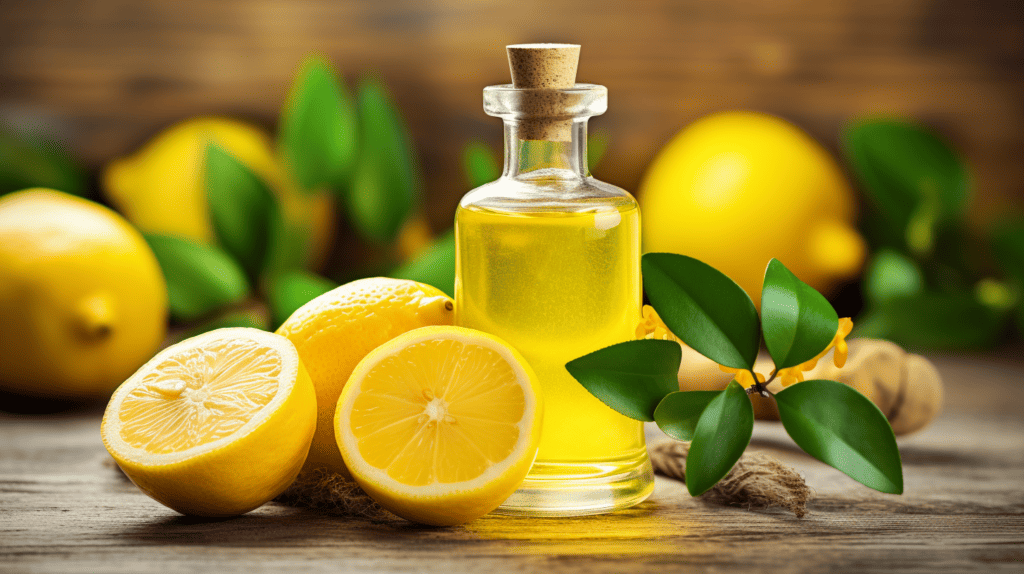
When it comes to essential oils, quality and purity are of utmost importance. Purchasing essential oils from a trusted and reputable source is crucial to ensure that you are getting a product that is safe and effective.
One way to ensure quality is to look for certification. Certified organic essential oils are a good choice as they are free from synthetic pesticides and fertilisers. Look for oils that have been certified by a recognised body such as the Soil Association or Ecocert.
Another way to ensure quality is to look for essential oils that have undergone quality control measures. This can include testing for purity and potency, as well as ensuring that the oils are free from contaminants. GC/MS testing is a common method used to test essential oils for purity and potency.
Adulteration is another issue to be aware of. Some essential oils may be diluted or adulterated with synthetic chemicals or other substances. Look for oils that are unadulterated and 100% pure to ensure that you are getting a product that is safe and effective.
In summary, when purchasing lemon essential oil, it is important to look for a product that is of high quality and purity. Look for oils that have been certified organic, have undergone quality control measures, and are unadulterated and 100% pure. By doing so, you can be confident that you are getting a product that is safe and effective.
Therapeutic Benefits of Lemon Essential Oil
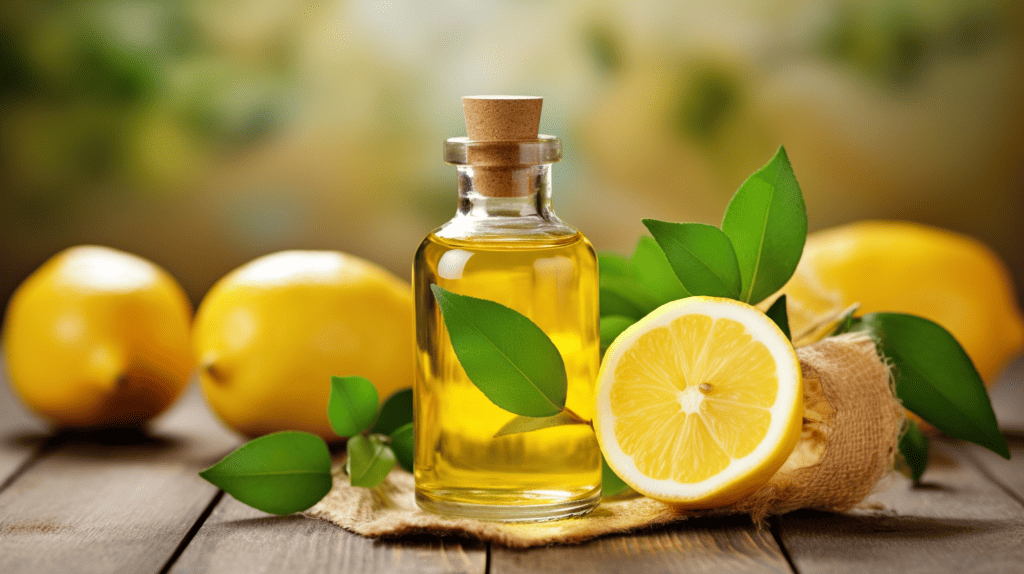
Lemon essential oil is a popular and versatile essential oil that has many therapeutic benefits. It is extracted from the peel of fresh lemons through cold-pressing, which helps to retain its natural properties. Here are some of the therapeutic benefits of lemon essential oil:
Promotes relaxation and reduces anxiety
Lemon essential oil has a calming effect on the mind and body, making it an excellent choice for reducing anxiety and promoting relaxation. It can help to alleviate symptoms of stress, depression, and anxiety by inducing a sense of calmness and relaxation.
Relieves pain and inflammation
Lemon essential oil has anti-inflammatory and analgesic properties, which makes it an effective natural remedy for pain and inflammation. It can help to relieve headaches, muscle aches, and joint pain.
Improves mental clarity and focus
Lemon essential oil has a refreshing and uplifting scent that can help to improve mental clarity and focus. It can help to enhance cognitive function, memory, and concentration, making it a great choice for students, professionals, and anyone who needs to stay focused and alert.
Boosts the immune system
Lemon essential oil has antibacterial, antifungal, and antiviral properties, which makes it an excellent natural remedy for boosting the immune system. It can help to fight off infections, colds, and flu, and can also help to prevent the spread of germs.
Supports healthy skin
Lemon essential oil has astringent and detoxifying properties, which makes it an excellent natural remedy for supporting healthy skin. It can help to reduce acne, blemishes, and oily skin, and can also help to improve skin tone and texture.
In summary, lemon essential oil has many therapeutic benefits that can help to promote relaxation, reduce anxiety, relieve pain and inflammation, improve mental clarity and focus, boost the immune system, and support healthy skin.
It is a versatile and natural remedy that can be used in a variety of ways to improve your overall health and wellbeing.
Top Lemon Essential Oil Brands
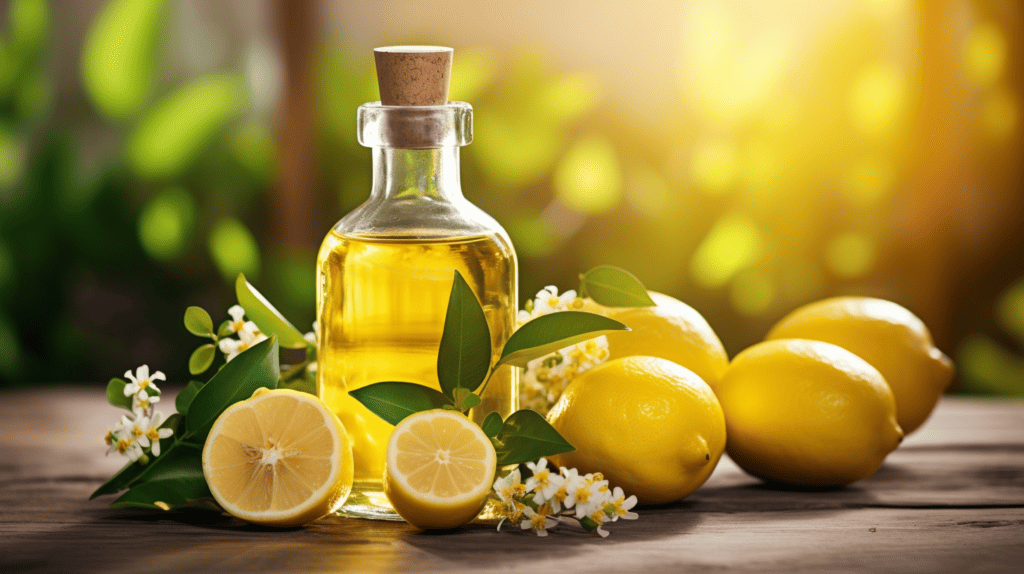
When it comes to purchasing lemon essential oil, it is important to choose a reputable brand that offers high-quality products. Here are some of the top lemon essential oil brands to consider:
Rocky Mountain Oils
Rocky Mountain Oils is a popular essential oil brand that offers a wide range of products, including lemon essential oil. Their lemon oil is 100% pure and is cold-pressed from the rinds of fresh lemons. Rocky Mountain Oils is known for its commitment to quality and purity, and their lemon oil is no exception.
Plant Therapy
Plant Therapy is another well-respected brand that offers high-quality essential oils, including lemon essential oil. Their lemon oil is 100% pure and is cold-pressed from the rinds of fresh lemons. Plant Therapy is committed to providing customers with affordable, high-quality essential oils, and their lemon oil is no exception.
doTERRA
doTERRA is a popular essential oil brand that offers a wide range of products, including lemon essential oil. Their lemon oil is 100% pure and is cold-pressed from the rinds of fresh lemons. doTERRA is known for its commitment to quality and purity, and their lemon oil is no exception.
Edens Garden
Edens Garden is another well-respected brand that offers high-quality essential oils, including lemon essential oil. Their lemon oil is 100% pure and is cold-pressed from the rinds of fresh lemons. Edens Garden is committed to providing customers with affordable, high-quality essential oils, and their lemon oil is no exception.
When it comes to choosing a brand of essential oil, it is important to do your research and choose a reputable brand that offers high-quality products.
By choosing one of the brands listed above, you can be sure that you are getting a high-quality lemon essential oil that will provide you with all of the benefits that this amazing oil has to offer.
Factors to Consider When Purchasing
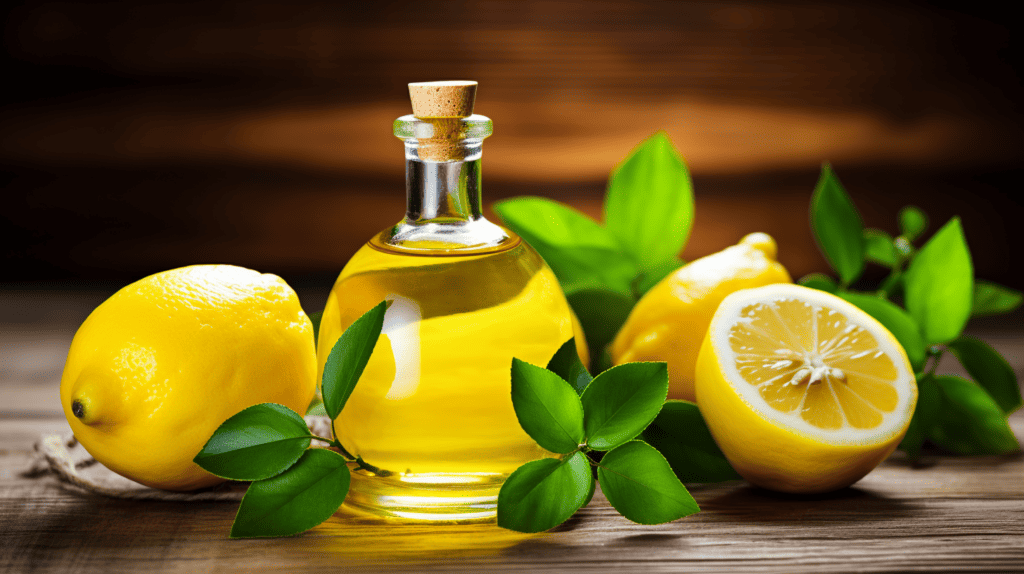
When purchasing lemon essential oil, there are a few factors that you should consider to ensure that you are getting a high-quality product that meets your needs. Here are some things to keep in mind:
Quality
One of the most important factors to consider when purchasing lemon essential oil is the quality of the product. Look for oils that are 100% pure and have no additives or synthetic ingredients.
High-quality oils will have a strong, fresh scent and will be extracted using methods that preserve the natural properties of the lemon.
Price
While price should not be the only factor you consider when purchasing lemon essential oil, it is still an important consideration. Generally, high-quality oils will be more expensive than lower-quality options.
However, this does not mean that you should always go for the most expensive option. Look for oils that are reasonably priced and offer good value for money.
Brand Reputation
When purchasing lemon essential oil, it is important to consider the reputation of the brand you are buying from. Look for brands that have a good reputation for producing high-quality essential oils. You can also check online reviews to see what other customers have to say about the brand and their products.
Extraction Method
The method used to extract the lemon essential oil can also impact its quality. Look for oils that have been extracted using cold-pressing or steam distillation, as these methods help to preserve the natural properties of the lemon.
Packaging
Finally, consider the packaging of the lemon essential oil. Look for oils that come in dark glass bottles, as this helps to protect the oil from light and heat, which can degrade its quality over time.
Additionally, look for oils that come with a dropper or other dispensing mechanism, as this can make it easier to use the oil in your daily routine.
By considering these factors, you can find a high-quality lemon essential oil that meets your needs and fits your budget.
Organic and Sustainability Certifications
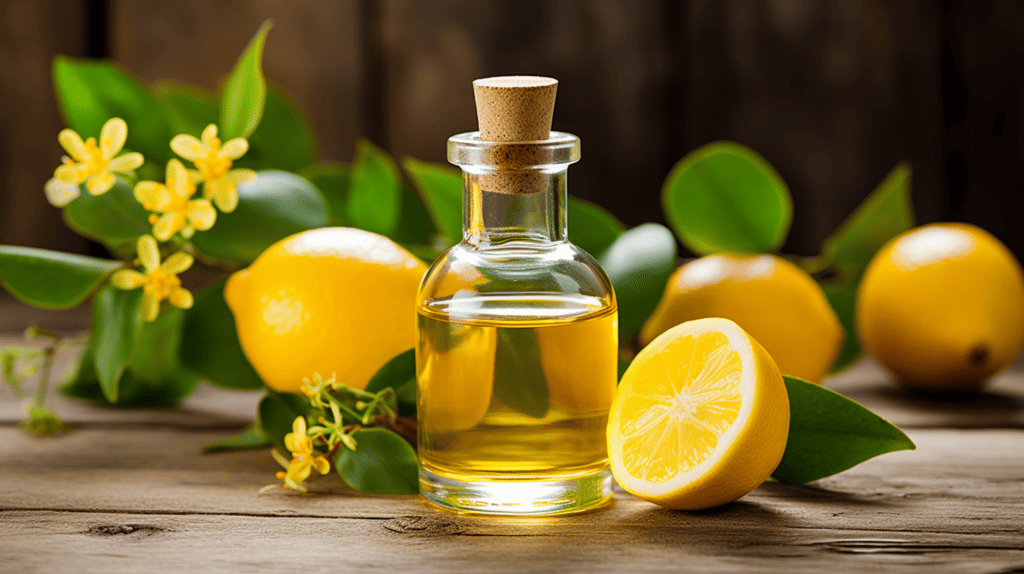
When it comes to choosing the best lemon essential oil brand, one of the most important factors to consider is whether the brand has organic and sustainability certifications.
These certifications ensure that the essential oils are made from natural ingredients and are produced in an environmentally friendly way.
One of the most well-known certifications is the USDA organic certification. This certification ensures that the essential oils are made from organic ingredients and that the production process meets strict environmental standards. Look for essential oil brands that have this certification to ensure that you are getting a high-quality, natural product.
Another important certification to look for is sustainability certification. This certification ensures that the essential oil brand is committed to sustainable practices, such as using renewable resources and reducing waste. Brands that have this certification are often more environmentally friendly and socially responsible.
When choosing a lemon essential oil brand, it is important to consider both organic and sustainability certifications. Brands that have these certifications are more likely to produce high-quality, natural products that are good for both you and the environment.
Here are some key points to keep in mind when looking for organic and sustainable lemon essential oil brands:
- Look for brands that have the USDA organic certification to ensure that you are getting a high-quality, natural product.
- Consider brands that have sustainability certifications to ensure that they are committed to environmentally friendly and socially responsible practices.
- Always read the label to ensure that the essential oil is made from natural ingredients and does not contain any harmful chemicals or additives.
- Look for brands that use renewable resources and reduce waste to minimize their impact on the environment.
- Choose brands that are transparent about their production process and are committed to ethical and sustainable practices.
Usage and Safety Guidelines
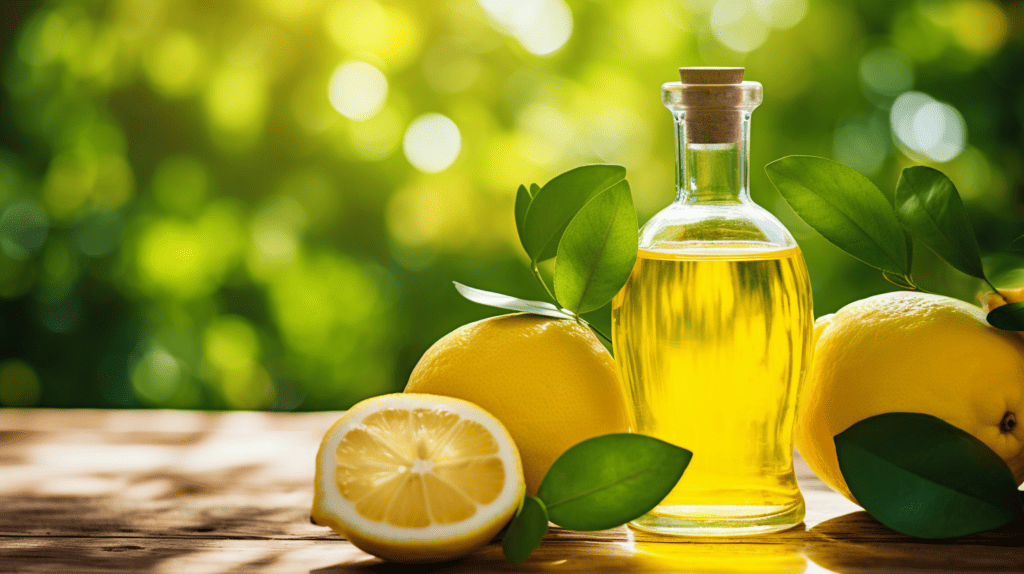
When using lemon essential oil, it is important to follow certain guidelines to ensure your safety and to get the most out of its benefits. Here are some tips to keep in mind:
Topical Use
Lemon essential oil can be applied topically, but it must be diluted with a carrier oil. A good rule of thumb is to use a 2% dilution, which means adding 12 drops of essential oil per 1 ounce of carrier oil.
You can use coconut oil, almond oil, or jojoba oil as a carrier oil. Do not apply lemon essential oil directly to your skin as it can cause irritation.
Diffusing
Lemon essential oil can be diffused using a diffuser. Add 3-5 drops of essential oil to your diffuser and enjoy the refreshing and uplifting scent. Remember to follow the manufacturer’s instructions for your specific diffuser.
Consuming
Lemon essential oil can be consumed, but only if it is labeled as safe for ingestion. Not all essential oils are safe to consume, so make sure to check the label before using it internally. You can add a drop of lemon essential oil to your water or tea for a refreshing drink.
Patch Test
Before using lemon essential oil topically, it is recommended to do a patch test to check for any allergic reactions. Apply a small amount of diluted essential oil to your skin and wait 24 hours to see if you have any adverse reactions.
Safety Precautions
Lemon essential oil is generally safe when used properly, but there are some precautions to keep in mind. Here are some safety tips:
- Do not use lemon essential oil undiluted on your skin.
- Do not apply lemon essential oil to broken or irritated skin.
- Do not use lemon essential oil if you are pregnant or breastfeeding.
- Do not use lemon essential oil on children under 6 years old.
- If you are taking medication or have a medical condition, consult with your healthcare provider before using lemon essential oil.
By following these guidelines, you can safely and effectively use lemon essential oil to enjoy its many benefits.
Lemon Essential Oil in Aromatherapy
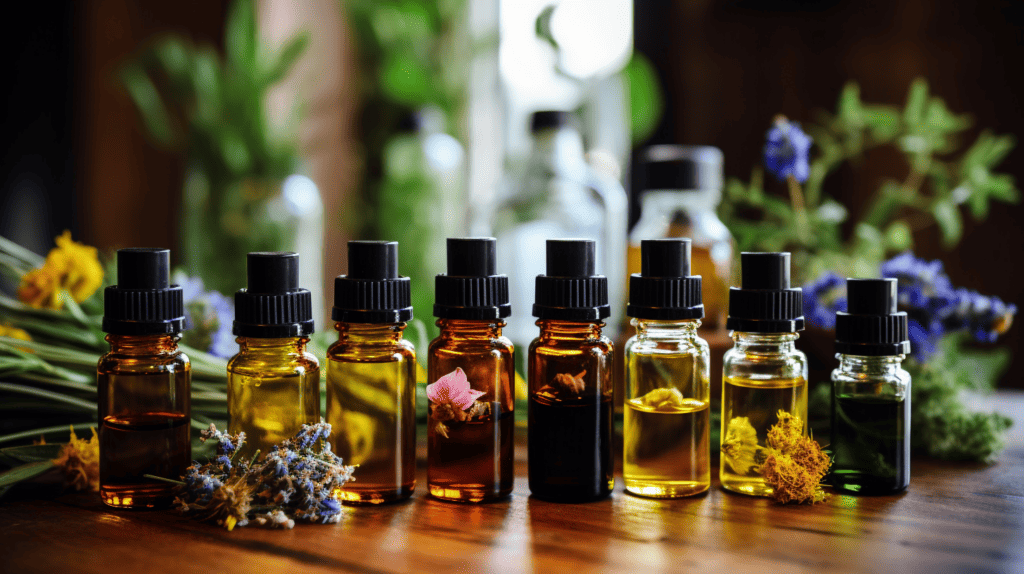
If you’re looking for a natural way to relieve stress and anxiety, lemon essential oil might be just what you need. This oil has a refreshing and uplifting scent that can help to boost your mood and reduce feelings of tension.
When used in aromatherapy, lemon essential oil can be added to a diffuser or inhaled directly from the bottle. You can also mix it with a carrier oil, such as coconut or jojoba oil, and use it as a massage oil.
Lemon essential oil is also believed to have antibacterial and antifungal properties, which can make it a great addition to your skincare routine. It can be used to help reduce the appearance of blemishes and improve the overall health of your skin.
In addition to its skincare benefits, lemon essential oil can also be used in DIY cleaning products. Its fresh and citrusy scent can help to eliminate unpleasant odours and leave your home smelling clean and fresh.
When choosing a lemon essential oil brand, it’s important to look for one that is 100% pure and free from additives or synthetic fragrances. Some popular brands include Fabulous Frannie, NOW Foods, and Young Living.
Overall, lemon essential oil is a versatile and effective oil that can be used in a variety of ways to improve your health and wellbeing. Whether you’re using it in aromatherapy, skincare, or cleaning, it’s a great addition to any natural health and beauty routine.
Essential Oils for Physical and Mental Health
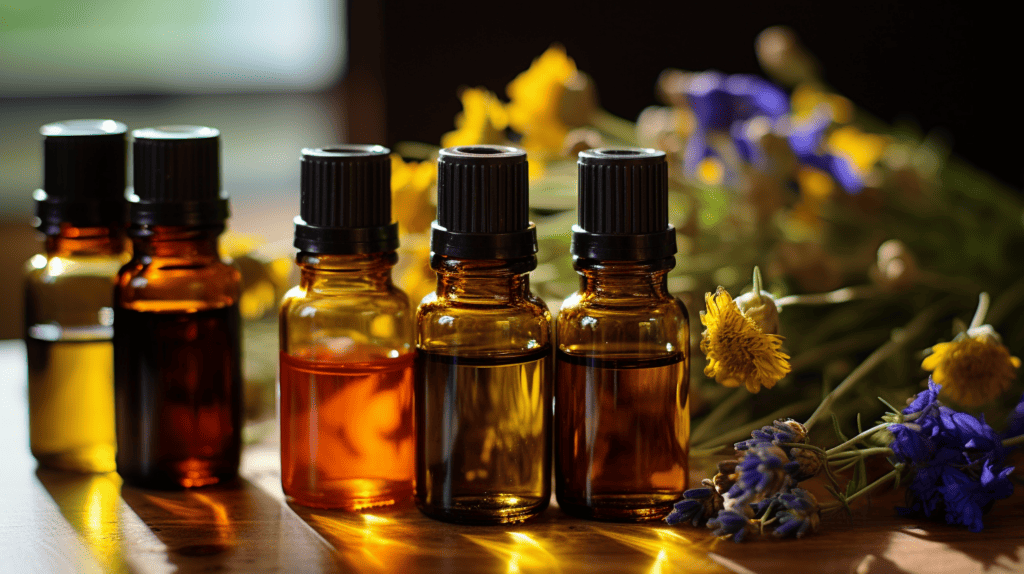
Lemon essential oil is a popular choice for those looking to improve their physical and mental health. It has a range of benefits that can help with everything from stress and anxiety to pain and inflammation.
One of the main benefits of lemon essential oil is its ability to help reduce stress and anxiety. It has a calming effect on the mind and can help to promote relaxation. This makes it a great choice for those who suffer from anxiety or who are feeling stressed out.
Lemon essential oil is also known for its anti-inflammatory properties. It can help to reduce inflammation in the body and can be particularly helpful for those who suffer from conditions such as arthritis.
In addition to its anti-inflammatory properties, lemon essential oil is also great for the skin. It can help to improve the appearance of the skin and can be used to treat a range of skin conditions such as acne and athlete’s foot.
If you suffer from headaches, lemon essential oil may also be able to help. It has been shown to have a positive effect on headaches and can help to reduce their severity and frequency.
Overall, lemon essential oil is a great choice for those looking to improve their physical and mental health. It has a range of health benefits and can be used in a variety of ways, from diffusing it in your home to using it topically on your skin.
Extraction Methods of Essential Oils
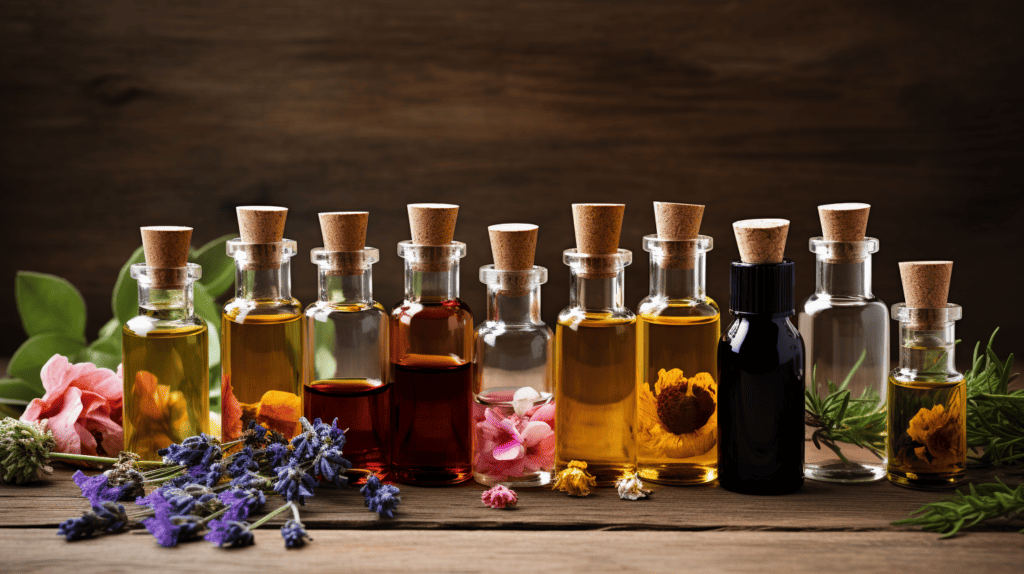
When it comes to essential oils, the method of extraction used can affect the quality and purity of the final product. Here are some of the most common extraction methods used for lemon essential oil:
Steam Distillation
Steam distillation is the most common method used for extracting essential oils, including lemon essential oil. In this method, steam is passed through the plant material, causing the essential oil to evaporate.
The steam and oil vapours are then condensed back into a liquid, which is collected. Steam distillation is a gentle method that preserves the delicate aroma and therapeutic properties of the essential oil.
Expression
Expression, also known as cold pressing, is another common method used for extracting lemon essential oil. In this method, the rind of the lemon is mechanically pressed to release the essential oil.
Expression is a simple and efficient method that yields a high-quality oil, but it can also result in a lower yield compared to steam distillation.
CO2 Extraction
CO2 extraction is a newer method used for extracting essential oils, including lemon essential oil. In this method, carbon dioxide is used to extract the oil from the plant material. CO2 extraction is a gentle and efficient method that yields a high-quality oil with a longer shelf life compared to other methods.
Other Extraction Methods
Other extraction methods used for lemon essential oil include enfleurage, maceration, and water distillation. Enfleurage involves soaking the plant material in fat to extract the essential oil, while maceration involves soaking the plant material in a solvent.
Water distillation involves boiling the plant material in water and collecting the essential oil that floats to the surface.
Overall, the method of extraction used for lemon essential oil can affect its quality, purity, and therapeutic properties. When choosing a lemon essential oil brand, it’s important to consider the extraction method used and look for brands that use gentle and efficient methods to extract their oils.
Essential Oils and the Immune System
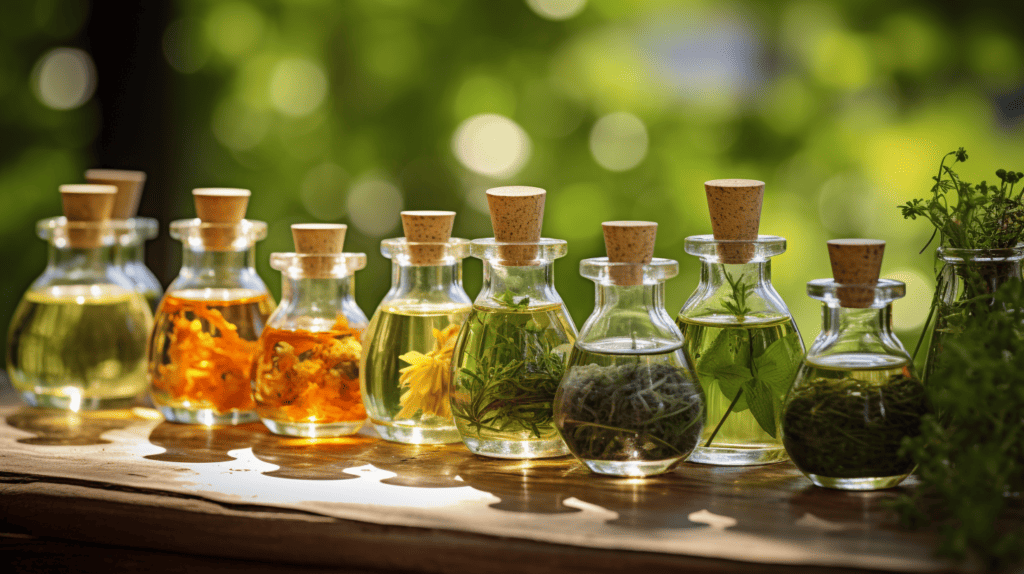
Essential oils have been used for centuries for their therapeutic properties. Many essential oils are known for their antibacterial, antifungal, and antiviral properties, making them useful in supporting the immune system. Here are some essential oils that are believed to help boost the immune system:
Lemon Essential Oil
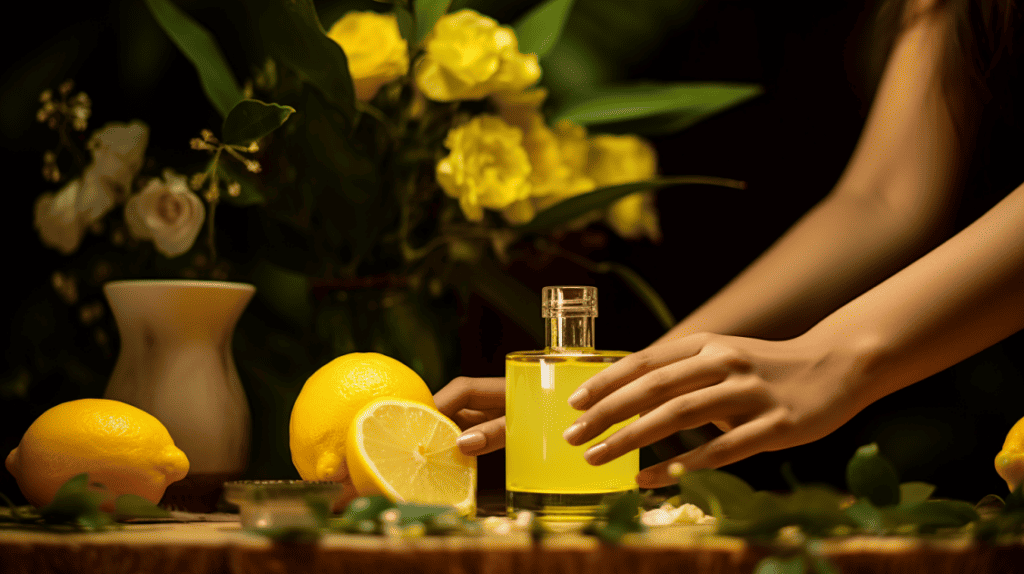
Lemon essential oil is known for its immune-boosting properties. It is believed to help stimulate white blood cell production, which is essential for fighting off infections. Lemon essential oil is also antibacterial and antifungal, making it useful for preventing infections.
Tea Tree Essential Oil

Tea tree essential oil is another oil that is believed to help support the immune system. It is known for its antibacterial, antifungal, and antiviral properties. Tea tree oil is also believed to help stimulate the immune system by increasing the production of white blood cells.
Eucalyptus Essential Oil
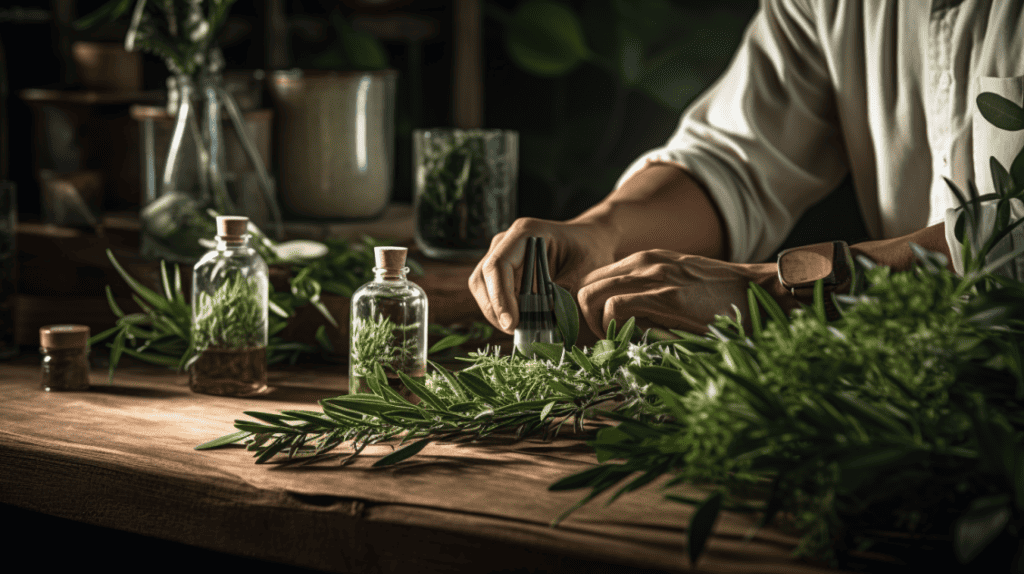
Eucalyptus essential oil is known for its ability to support respiratory health. It is believed to help fight off infections by killing bacteria and viruses. Eucalyptus oil is also believed to help stimulate the immune system by increasing the production of white blood cells.
Peppermint Essential Oil

Peppermint essential oil is known for its ability to help relieve respiratory issues. It is believed to help fight off infections by killing bacteria and viruses. Peppermint oil is also believed to help stimulate the immune system by increasing the production of white blood cells.
In conclusion, essential oils can be a useful tool in supporting the immune system. However, it is important to note that essential oils should not be used as a substitute for medical treatment. If you are experiencing symptoms of an infection, it is important to seek medical attention.
Buying Essential Oils Online
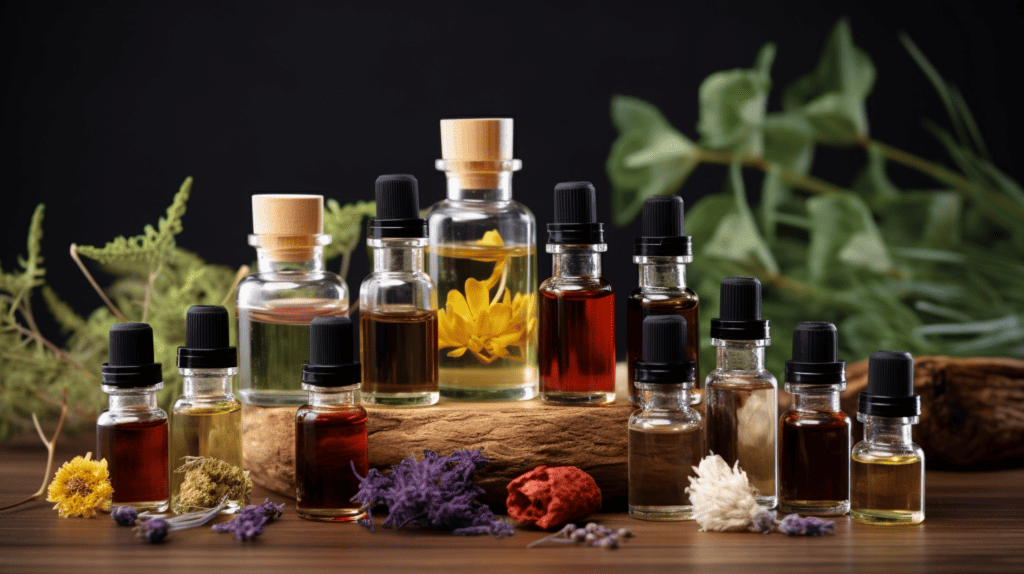
When it comes to purchasing essential oils, buying online can be a convenient and cost-effective option. However, it’s important to do your research and ensure that you’re purchasing from a reputable seller. Here are a few tips to help you make informed decisions when buying essential oils online:
Look for Reviews
Before making a purchase, take the time to read reviews from other customers. This can give you valuable insight into the quality of the product and the seller’s customer service. Be sure to read both positive and negative reviews to get a balanced understanding of the product.
Check the Seller’s Reputation
When buying essential oils online, it’s important to purchase from a reputable seller. Check the seller’s website for information on their sourcing and production methods. You can also look for certifications such as organic or fair trade.
Consider the Price
While it’s important to look for a good deal, be wary of prices that seem too good to be true. High-quality essential oils are often expensive due to the cost of production and sourcing. If a price seems too low, it may be an indication that the oil is of low quality or has been adulterated.
Check the Return Policy
Before making a purchase, be sure to check the seller’s return policy. This can give you peace of mind in case the product doesn’t meet your expectations. Look for a seller that offers a generous return policy and easy returns process.
Consider Purchasing from Amazon
Amazon can be a great place to purchase essential oils online. They offer a wide variety of brands and products, and many sellers offer free shipping and easy returns. Be sure to read reviews and check the seller’s reputation before making a purchase.
By following these tips, you can make informed decisions when purchasing essential oils online. Remember to always do your research and purchase from a reputable seller to ensure that you’re getting a high-quality product.
Ethical Considerations in Essential Oil Industry
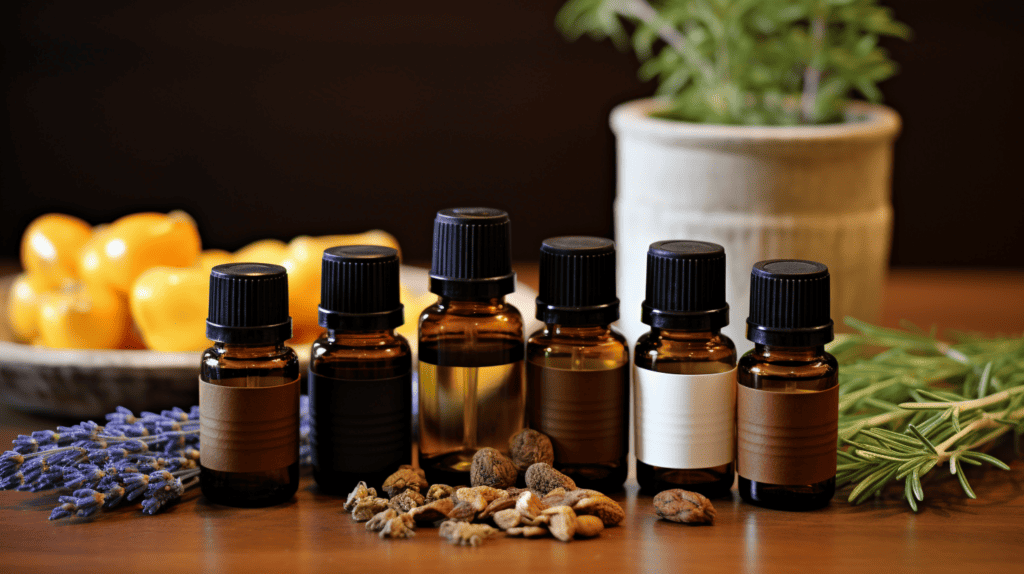
When it comes to purchasing essential oils, it is important to consider ethical considerations in the industry. Here are some factors to keep in mind:
FDA Regulations
The FDA does not regulate essential oils, which means that it is up to the industry to self-regulate. Look for companies that follow industry standards and guidelines to ensure that their products are safe and high-quality.
Vegan and Cruelty-Free
If you are a vegan or animal lover, you may want to look for essential oil brands that are cruelty-free and vegan. This means that the products are not tested on animals and do not contain any animal-derived ingredients. Look for certifications from organizations such as PETA or the Leaping Bunny Program.
Industry Standards
The essential oil industry has several industry standards that companies can follow to ensure that their products are safe and high-quality.
Look for companies that follow Good Manufacturing Practices (GMP) and have certifications from organizations such as the National Association of Holistic Aromatherapy (NAHA) or the Alliance of International Aromatherapists (AIA).
GC/MS Testing
Gas Chromatography/Mass Spectrometry (GC/MS) testing is a way to ensure that essential oils are pure and free from contaminants. Look for companies that provide GC/MS reports for their products, which show the chemical composition of the oils.
CPTG Certification
Certified Pure Therapeutic Grade (CPTG) is a certification created by doTERRA, a popular essential oil brand. While CPTG is not an industry standard, it is a way for doTERRA to ensure that their oils are pure and high-quality. Look for CPTG certification if you are interested in doTERRA products.
By considering these ethical considerations, you can make informed decisions when purchasing essential oils and support companies that prioritize quality and safety.
Essential Oils and Pregnancy
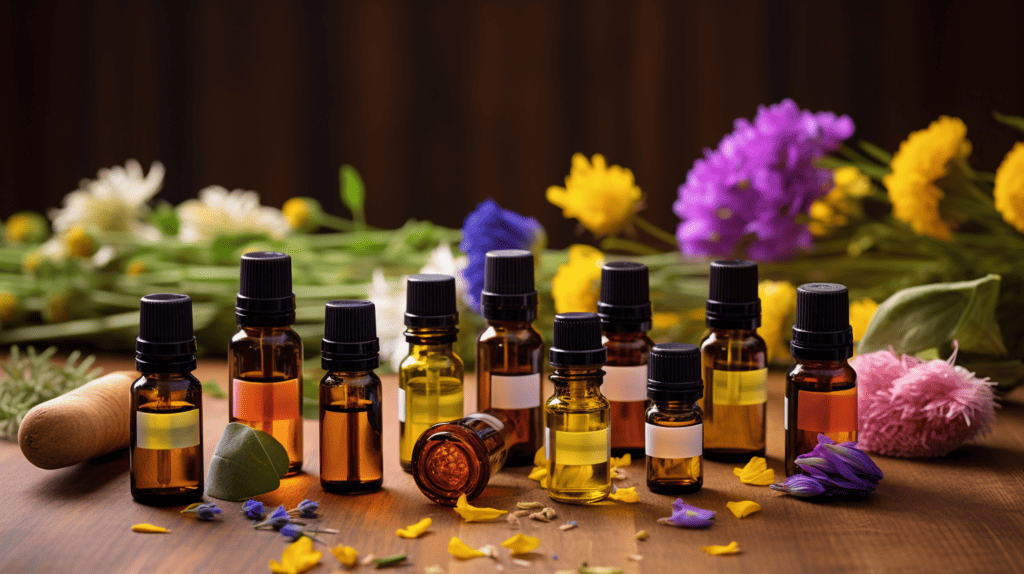
Pregnancy is a special time for a woman, and it’s important to take care of yourself and your baby. Essential oils can be a great way to help ease some pregnancy symptoms and promote relaxation, but it’s important to be cautious when using them.
Before using any essential oils during pregnancy, it’s important to talk with your doctor or midwife. Some essential oils can cause contractions or other complications, especially during the first trimester. It’s also important to avoid ingesting any essential oils during pregnancy.
Here are some general guidelines for using essential oils during pregnancy:
- Only use essential oils externally, such as on your skin or in a diffuser.
- Dilute essential oils with a carrier oil, such as coconut or jojoba oil, before applying them to your skin.
- Avoid using essential oils on or near your belly, especially during the first trimester.
- Use essential oils in moderation and avoid using them every day.
- Avoid essential oils that are known to be unsafe during pregnancy, such as basil, cinnamon, and rosemary.
Some essential oils that are generally considered safe during pregnancy include:
- Lavender: can help promote relaxation and ease anxiety.
- Peppermint: can help ease nausea and headaches.
- Lemon: can help boost mood and energy levels.
Always use essential oils with caution during pregnancy and only under the guidance of your healthcare provider.
Non-GMO and Allergen-Free Essential Oils
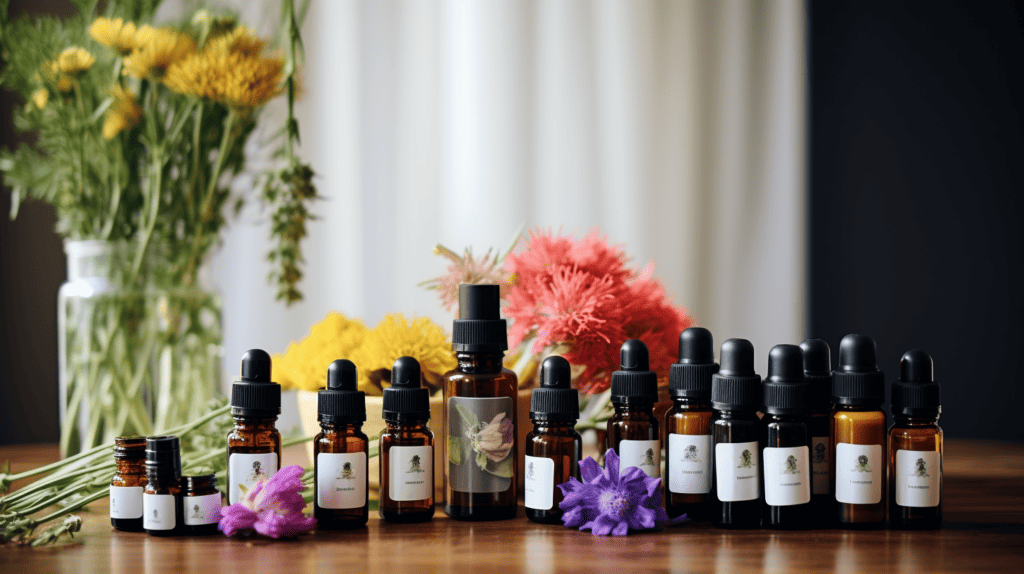
When searching for the best lemon essential oil brands, it’s important to consider the quality of the ingredients used. Non-GMO and allergen-free essential oils are a great option for those who are conscious about the products they use and want to avoid any potential allergens.
Non-GMO essential oils are made from plants that have not been genetically modified. This means that the plants have not been altered in any way that could affect their natural properties. By choosing non-GMO essential oils, you can be sure that you are getting a pure and natural product.
Allergen-free essential oils are free from common allergens such as nuts, gluten, and soy. This is important for those who have allergies or sensitivities to these ingredients. By choosing allergen-free essential oils, you can enjoy the benefits of aromatherapy without any adverse reactions.
When looking for non-GMO and allergen-free essential oils, it’s important to check the product labels and third-party certifications. Look for essential oil brands that have been certified by reputable organisations such as USDA Organic, Non-GMO Project, and Allergy UK.
Some of the best lemon essential oil brands that offer non-GMO and allergen-free options include Cliganic, Plant Therapy, and Young Living. These brands use high-quality ingredients and have strict quality control measures in place to ensure that their products are pure and safe to use.
Overall, choosing non-GMO and allergen-free essential oils is a great way to ensure that you are using a pure and natural product. By doing your research and checking product labels and certifications, you can find the best lemon essential oil brands that meet your specific needs and preferences.
Carrier Oils for Essential Oils
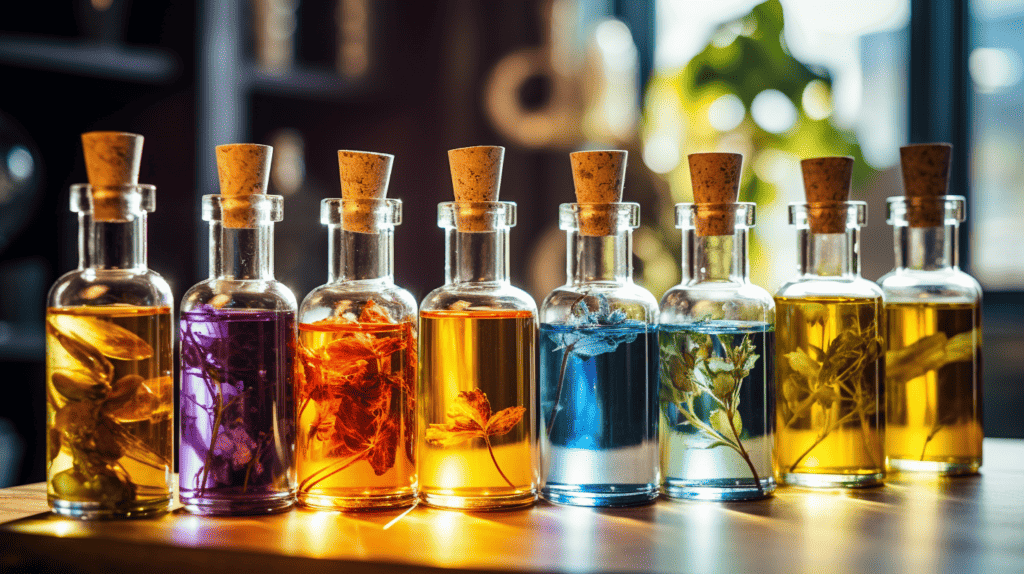
When it comes to using essential oils, carrier oils are essential. They are used to dilute essential oils and help them absorb into the skin. Some carrier oils can also provide additional benefits to the skin. Here are some of the best carrier oils for essential oils:
- Coconut Oil: Coconut oil is a popular carrier oil for essential oils. It is rich in fatty acids and has antimicrobial properties that can help protect the skin. However, it can solidify at cooler temperatures, making it difficult to use in certain applications.
- Jojoba Oil: Jojoba oil is a great carrier oil for all skin types. It is lightweight and absorbs quickly, making it ideal for facial applications. It also has anti-inflammatory properties that can help soothe irritated skin.
- Sweet Almond Oil: Sweet almond oil is a popular carrier oil for massage and body oils. It is rich in vitamin E and has a light, nutty scent. It is easily absorbed by the skin and can help improve skin texture and tone.
- Grapeseed Oil: Grapeseed oil is a lightweight carrier oil that is easily absorbed by the skin. It is high in antioxidants and can help protect the skin from damage caused by free radicals. It is also a good choice for oily or acne-prone skin.
- Avocado Oil: Avocado oil is a rich, nourishing carrier oil that is ideal for dry or mature skin. It is high in fatty acids and vitamins A, D, and E, which can help improve skin elasticity and reduce the appearance of fine lines and wrinkles.
- Olive Oil: Olive oil is a versatile carrier oil that is rich in antioxidants and can help protect the skin from damage. It is a good choice for dry or mature skin, but may be too heavy for oily or acne-prone skin.
When choosing a carrier oil for your essential oils, it is important to consider your skin type and the intended use of the oil. Experiment with different carrier oils to find the one that works best for you.
Essential Oils for Common Ailments

Lemon essential oil is a versatile oil that can be used for many common ailments. Here are some ways you can use lemon essential oil to help alleviate symptoms of flu, coughs, headaches, and nausea:
Flu
If you’re feeling under the weather with the flu, lemon essential oil can help. Add a few drops of lemon essential oil to a diffuser and inhale the vapours to help relieve congestion and ease breathing. You can also add lemon essential oil to a warm bath to help soothe achy muscles and reduce fever.
Coughs
Lemon essential oil can help alleviate coughing and soothe a sore throat. Add a few drops of lemon essential oil to a bowl of hot water and inhale the steam to help relieve congestion and coughing. You can also mix lemon essential oil with a carrier oil like coconut oil and apply it to your chest and throat to help soothe a cough.
Headaches
Lemon essential oil can help relieve tension headaches and migraines. Mix a few drops of lemon essential oil with a carrier oil and massage it into your temples and forehead to help relieve pain and tension. You can also add a few drops of lemon essential oil to a warm bath to help relax your muscles and ease headache pain.
Nausea
Lemon essential oil can help alleviate nausea and vomiting. Add a few drops of lemon essential oil to a diffuser and inhale the vapours to help calm your stomach. You can also mix lemon essential oil with a carrier oil and massage it into your abdomen to help relieve nausea.
Remember to always dilute lemon essential oil with a carrier oil before applying it to your skin, and avoid using it near your eyes or mucous membranes. If you have a medical condition or are pregnant or breastfeeding, consult with your healthcare provider before using lemon essential oil.
The Role of Essential Oils in Balancing Emotions
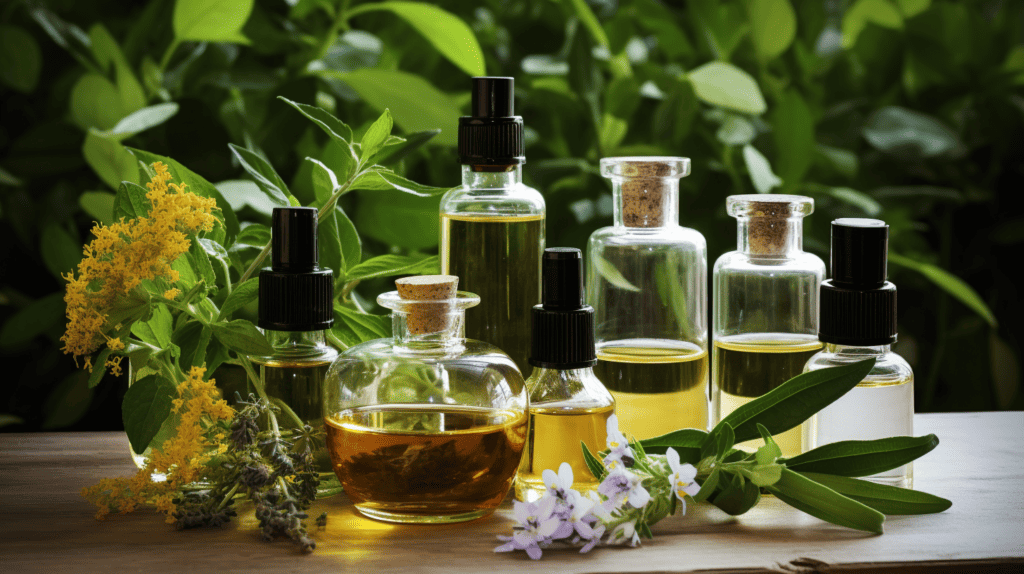
Essential oils have been used for centuries for their therapeutic properties. They are known to have a positive impact on physical, mental, and emotional health. One of the most significant benefits of essential oils is their ability to balance emotions.
When you inhale essential oils, they stimulate the olfactory system, which is responsible for processing smells. The olfactory system is connected to the limbic system, which is the part of the brain that controls emotions.
The limbic system is also responsible for regulating the autonomic nervous system, which controls functions such as heart rate, blood pressure, and breathing.
Essential oils have been found to have a direct impact on the limbic system, which is why they are so effective at balancing emotions.
They can help to reduce stress and anxiety, promote relaxation, and improve mood. Some essential oils are also known to have a stimulating effect, which can help to increase energy and motivation.
Here are some of the ways in which essential oils can help to balance emotions:
- Reduce stress and anxiety: Essential oils such as lavender, bergamot, and chamomile are known for their calming properties. They can help to reduce feelings of stress and anxiety, promote relaxation, and improve sleep quality.
- Promote happiness and positivity: Essential oils such as lemon, grapefruit, and orange are known for their uplifting properties. They can help to promote feelings of happiness and positivity, and improve overall mood.
- Increase energy and motivation: Essential oils such as peppermint, rosemary, and eucalyptus are known for their stimulating properties. They can help to increase energy and motivation, improve focus and concentration, and reduce feelings of fatigue.
It is important to note that essential oils should not be used as a substitute for medical treatment. If you are experiencing emotional or mental health issues, it is important to seek professional help.
However, incorporating essential oils into your self-care routine can be a helpful way to support emotional balance and overall wellbeing.
The Science Behind Essential Oils

Essential oils have been used for thousands of years for their therapeutic properties. These oils are extracted from different parts of plants, such as leaves, flowers, and roots, and contain the natural aroma and flavour of the plant.
The science behind essential oils lies in their chemical composition, which can have a variety of effects on the body and mind.
Essential oils contain volatile compounds, which means they can easily evaporate and release their aroma. These compounds include terpenes, alcohols, esters, and ketones, among others. Each essential oil has a unique chemical composition, which determines its therapeutic properties.
When inhaled, essential oils can stimulate the olfactory system, which is responsible for our sense of smell. This can affect our mood, emotions, and behaviour.
For example, lavender essential oil has been shown to have a calming effect, while peppermint essential oil can help to boost energy and concentration.
Essential oils can also be absorbed through the skin, where they can have a localised effect. For example, tea tree essential oil has antibacterial properties and can be used to treat acne and other skin conditions. Lemon essential oil has been shown to have antioxidant properties and can be used to brighten and tone the skin.
It’s important to note that while essential oils have many potential benefits, they should be used with caution. Some oils can be irritating to the skin or cause allergic reactions. It’s also important to use high-quality oils from reputable brands to ensure purity and potency.
Overall, the science behind essential oils is fascinating and offers many possibilities for natural health and wellness. By understanding the chemical composition and therapeutic properties of different oils, you can choose the ones that best suit your needs and preferences.
Essential Oils in Art
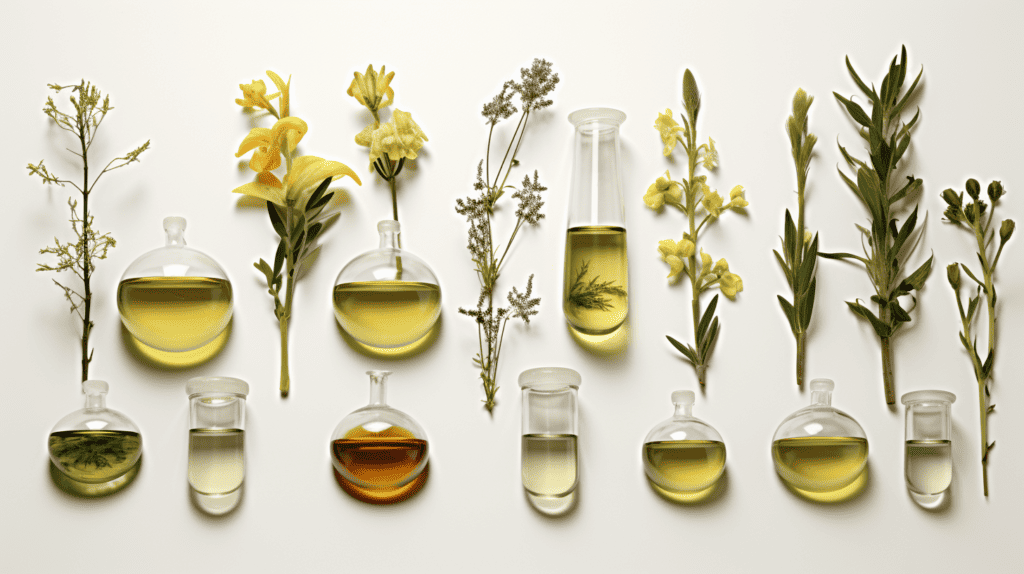
Essential oils have been used in art for centuries. From creating beautiful fragrances to adding therapeutic benefits, essential oils have become a popular medium for artists. Here are some ways essential oils are used in art:
Aromatherapy Art
Aromatherapy art is a type of art that incorporates essential oils to create a relaxing and soothing atmosphere. The artwork is usually created with calming colours and images, and essential oils are diffused in the room to enhance the overall effect. This type of art is perfect for relaxation spaces, such as spas and meditation rooms.
Oil Painting
Essential oils can also be used in oil painting. Some artists add essential oils to their oil paints to create unique fragrances and add therapeutic benefits to their paintings. Lavender, peppermint, and eucalyptus are popular essential oils used in oil painting.
Scented Candles
Scented candles are a popular way to use essential oils in art. Many artists create their own scented candles using essential oils to create unique fragrances. These candles are not only beautiful but also provide therapeutic benefits, such as stress relief and relaxation.
Potpourri
Potpourri is a mixture of dried flowers, herbs, and essential oils that are used to add fragrance to a room. Some artists create their own potpourri using essential oils to create unique fragrances that complement their artwork.
Perfume Making
Perfume making is an art form that has been around for centuries. Essential oils are the main ingredient in perfumes, and artists use their knowledge of essential oils to create unique fragrances. Some artists even create their own line of perfumes using essential oils.
In conclusion, essential oils have become a popular medium for artists due to their unique fragrances and therapeutic benefits. Whether it’s creating aromatherapy art or adding essential oils to oil paints, artists are finding new and creative ways to incorporate essential oils into their artwork.
Essential Oils and Diet
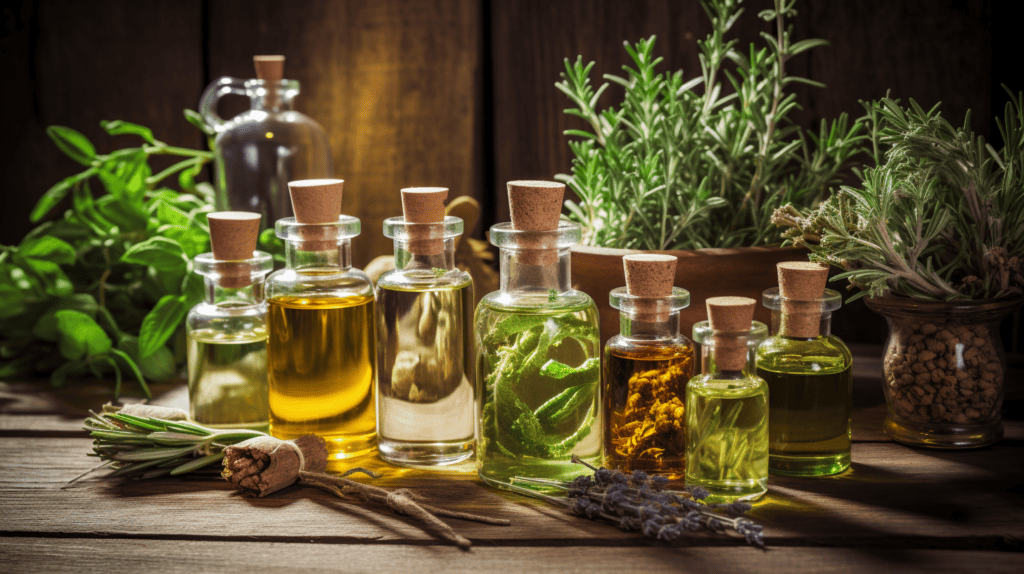
If you’re looking to incorporate lemon essential oil into your diet, it’s important to know that essential oils are highly concentrated and should not be ingested in large amounts.
In fact, many essential oils should not be ingested at all. Always consult with a healthcare professional before ingesting any essential oils.
That being said, lemon essential oil can be a great addition to your diet when used properly. One common way to use lemon essential oil is by adding a drop or two to a glass of water. This can provide a refreshing and energising boost to your day.
Another way to incorporate lemon essential oil into your diet is by using it in cooking. Lemon essential oil can add a bright and citrusy flavour to dishes like salads, marinades, and dressings. Be sure to follow recipes carefully and use only the recommended amount of essential oil.
When using essential oils in cooking, it’s important to use high-quality oils that are safe for ingestion. Look for brands that clearly label their oils as safe for internal use and have a good reputation for purity and potency.
Overall, incorporating lemon essential oil into your diet can be a great way to enjoy its many benefits. Just be sure to use it safely and responsibly, and always consult with a healthcare professional before ingesting any essential oils.
Plant Parts Used in Essential Oil Production
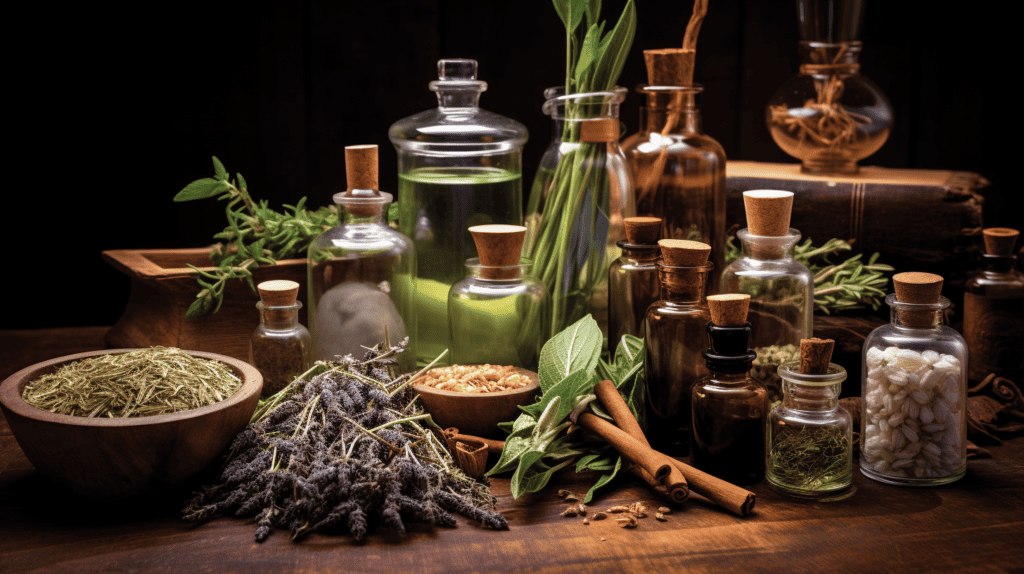
When it comes to essential oil production, different plant parts can be used, depending on the type of oil you’re trying to produce. Here are some of the most common plant parts used in essential oil production:
Flowers

Flowers are a popular source of essential oils, as they often contain fragrant compounds that are ideal for use in aromatherapy and perfumery. Some of the most popular flower-based essential oils include rose, jasmine, and ylang-ylang.
Leaves

Leaves are another common source of essential oils. Many herbs, such as basil, peppermint, and thyme, have oils that are extracted from their leaves. These oils are often used for their medicinal properties, as well as their pleasant scents.
Fruits

Many fruits contain essential oils that are used in a variety of products, from cosmetics to cleaning solutions. Citrus fruits, in particular, are a popular source of essential oils. Lemon, lime, and orange oils are all commonly used in aromatherapy and cleaning products.
Plant Therapy

Plant therapy is a type of alternative medicine that uses essential oils to promote health and well-being. Many different types of essential oils can be used in plant therapy, depending on the desired effect. For example, lavender oil is often used to promote relaxation, while peppermint oil is used to boost energy and focus.
When choosing an essential oil brand for plant therapy, it’s important to look for high-quality oils that are pure and free from additives. Some popular brands include doTERRA, Young Living, and Rocky Mountain Oils.
In conclusion, essential oils can be produced from a variety of plant parts, including flowers, leaves, and fruits. Whether you’re using them for aromatherapy, cleaning, or plant therapy, it’s important to choose high-quality oils that are free from additives and contaminants.
Conclusion
Now that you have gone through the top lemon essential oil brands available in 2023, you can make an informed decision on which one to purchase. Remember, when buying essential oils, it is crucial to choose a brand that offers 100% pure and natural products.
Artizen lemon essential oil is a great choice if you are looking for a budget-friendly option without compromising on quality. If you are willing to spend a bit more, Plant Therapy and Rocky Mountain Oils are both excellent choices as they offer high-quality oils that are rigorously tested for purity and potency.
When it comes to choosing a brand, it is important to consider factors such as third-party certifications, product selection, and pricing. Always do your research and read reviews from other customers before making a purchase.
Lemon essential oil has many benefits, including stress relief, mood enhancement, and skin rejuvenation. Whether you are a seasoned essential oil user or just starting, lemon essential oil is a must-have in your collection.
Remember to always use essential oils safely and follow the recommended dilution ratios. Essential oils are powerful substances that should be used with caution.
Now that you have all the information you need, go ahead and choose the best lemon essential oil brand for you and enjoy the many benefits it has to offer!
Frequently Asked Questions
Can lemon essential oil be used for cooking?
Lemon essential oil is highly concentrated and should not be ingested without the guidance of a qualified aromatherapist or healthcare professional. It is important to note that essential oils are not regulated for internal use and can be toxic if consumed in large quantities. Therefore, it is not recommended to use lemon essential oil for cooking.
Which brand of lemon essential oil is best for cleaning wood?
When it comes to cleaning wood, it is important to use a high-quality lemon essential oil that is pure and free from any additives or synthetic fragrances. Some of the best brands for cleaning wood include Young Living, doTERRA, and Plant Therapy. Always dilute the essential oil in a carrier oil before using it on wood surfaces to avoid any damage.
What are the top five essential oils for a natural home remedy kit?
Building a natural home remedy kit can be a great way to support your health and wellbeing. Some of the top essential oils to include in your kit are:
- Lavender: for calming and relaxation
- Peppermint: for headaches and digestion
- Tea Tree: for skin irritations and infections
- Eucalyptus: for respiratory support
- Lemon: for cleansing and uplifting
Remember to always dilute essential oils before using them topically and to consult with a healthcare professional if you have any concerns or medical conditions.




